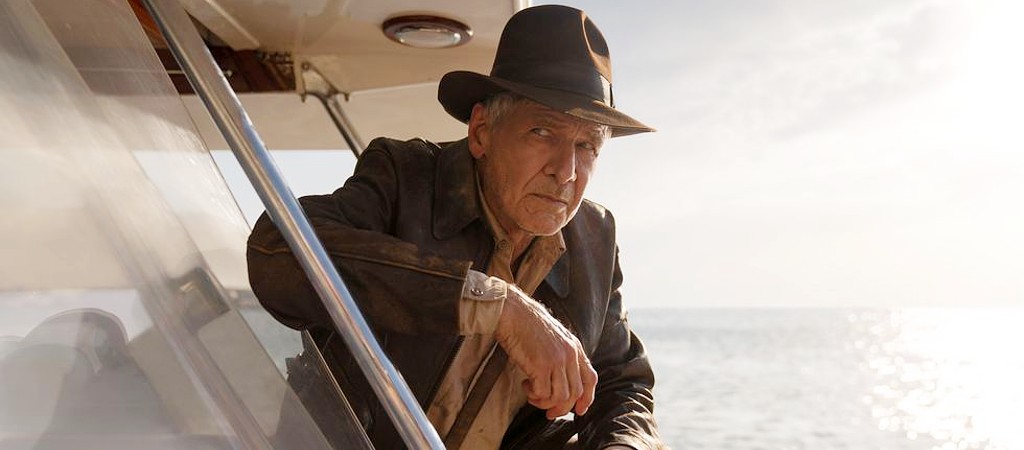
Indiana Jones and the Dial of Destiny made its world premiere at Cannes, and the first batch of reviews are pretty synonymous: This franchise belongs in a museum. While Harrison Ford‘s age is the obvious elephant of the room (there were concerns he was too old for the part when 2008’s Kingdom of the Crystal Skull whipped into theaters), the biggest issue is making an Indy adventure that doesn’t feel outdated even with today’s CGI advances. These are films that were a product of their time, and it’s hard to recapture that magic.
Director James Mangold helmed this fifth and probably final installment, and for the most part, he appears to have at least cleared the low bar set by Crystal Skull. However, anyone expecting Mangold to deliver a Logan-esque finale for the swashbuckling archaeologist are going to be in for a disappointment.
Here’s what the critics are saying:
Owen Gleiberman, Variety:
“Indiana Jones and the Dial of Destiny” is a dutifully eager but ultimately rather joyless piece of nostalgic hokum. It’s the fifth installment of the “Indiana Jones” franchise, and though it has its quota of “relentless” action, it rarely tries to match (let alone top) the ingeniously staged kinetic bravura of “Raiders of the Lost Ark.” How could it?
David Ehrlich, IndieWire:
It goes without saying that James Mangold is no Steven Spielberg, just as it would be wildly unfair to hold any Hollywood director to that standard. On the contrary, there’s something kind of admirable about the fact that Mangold found the chutzpah to close the book on the Bearded One’s signature franchise. What he didn’t find was a compelling reason to re-open that book in the first place. Not only is “Indiana Jones and the Dial of Destiny” an almost complete waste of time, it’s also a belabored reminder that some relics are better left where and when they belong.
Stephanie Bunbury, Deadline:
The latest Indiana Jones is also anything but artisanal: it could give late-vintage Fast and Furious a very, very speedy run for its money when it comes to spectacular (and spectacularly ludicrous) SFX stunts. It serves them up, however, in the same gleeful spirit that Steven Spielberg brought to Raiders of the Lost Ark way back in 1981, when CGI was just a pup, with a satisfying sprinkling of call-backs to moments in the earlier films. Where new tech really comes into its own, however, is undoing the weathering of the years on Ford’s handsomely old face.
Nicholas Barber, BBC:
The good news is that it isn’t a disaster. It’s a respectable, competent addition to the series. The bad news is that a disaster might have been more worthwhile. The Dial of Destiny takes a sudden, bold and sure-to-be divisive swerve into wacky uncharted territory in its last half-hour, but otherwise it’s like fan fiction, a tie-in video game, or a branded theme-park ride, in that it’s content to tick off everything you’ve seen in other Indiana Jones films already, but with little of Spielberg’s sparkle.
Peter Bradshaw, The Guardian:
It’s the first Indiana Jones film not to be directed by Steven Spielberg – James Mangold is now at the helm – but despite that, this one has quite a bit of zip and fun and narrative ingenuity with all its MacGuffiny silliness that the last one (Indiana Jones and the Kingdom of the Crystal Skull) really didn’t.
David Fear, Rolling Stone:
There are needs being met here, but they aren’t storytelling-based so much as stoking-the-fanbase and meeting-the-bottom-line ones. Ford still has the fortitude to play the part. But just having him show up to crack whips and crack wise in the name of bringing back that old Indy thrills-spills-chills magic isn’t enough of an excuse to have him don the fedora one last time. “Things move forward,” one character tells Jones. “And sometimes, they move backward.” Someone may have turned the dial a little too much on the latter’s side this time around.
David Rooney, The Hollywood Reporter:
This is a big, bombastic movie that goes through the motions but never finds much joy in the process, despite John Williams’ hard-working score continuously pushing our nostalgia buttons and trying to convince us we’re on a wild ride. Indy ignores the inevitable jokes about his age and proves he can still handle himself in a tight spot. But Ford often seems disengaged, as if he’s weighing up whether this will restore the tarnished luster to his iconic action hero or reveal that he’s past his expiration date. Both the actor and the audience get a raw deal with this empty exercise in brand redemption.
John Nugent, Empire:
For this first Spielberg-less outing, all the hallmarks of the series are there as you’d hope them to be, lovingly preserved like archaeological treasures: there is an ingenious and elaborate booby-trapped cave system, there is a throwback map sequence, and there are plenty of Nazis, ready for the punching. But there is also some sadness and regret, a man out of time, finally running out of time, and surveying the ruins of his life; a tone that sometimes feels unusually sombre for this kind of blockbuster.
Indiana Jones and the Dial of Destiny whips into theaters on June 30.
